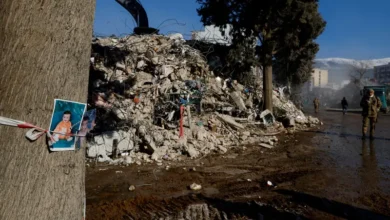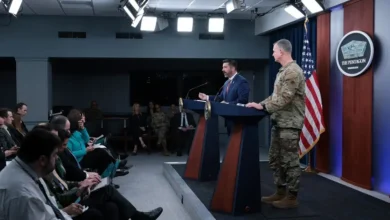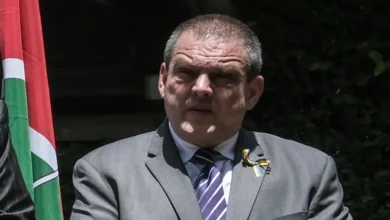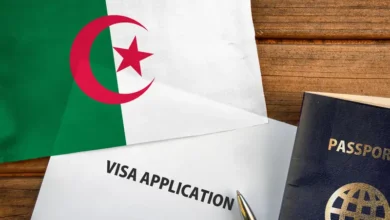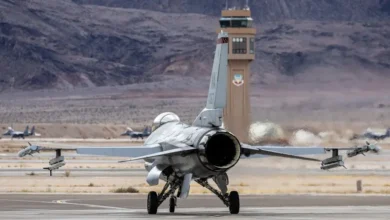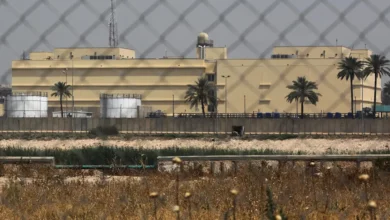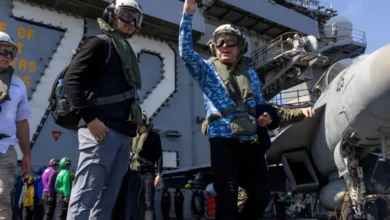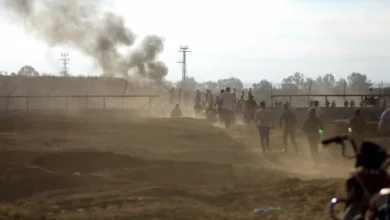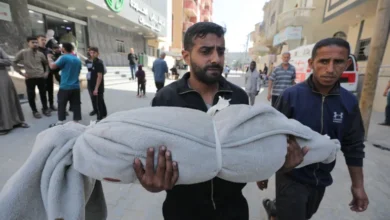Fighting continues in Sudan a day after ceasefire extended
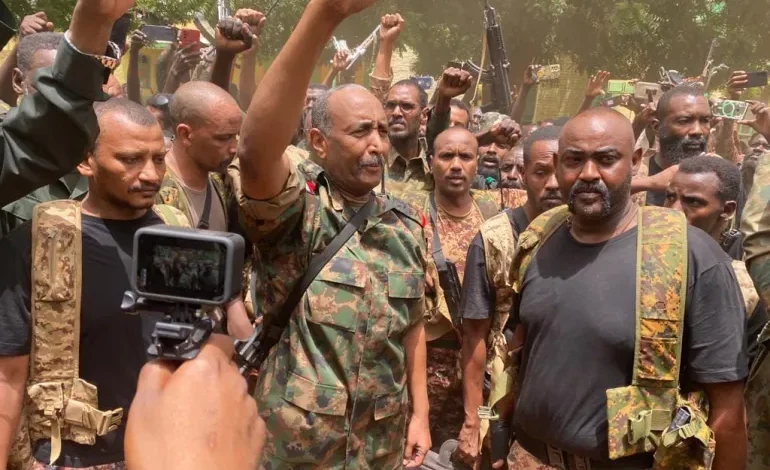
Intense clashes have been continuing in Sudan’s capital a day after military factions agreed to extend a ceasefire aimed at allowing aid to reach civilians.
The army and the paramilitary Rapid Support Forces (RSF) agreed to extend a week-long ceasefire deal by five days just before it was due to expire late on Monday.Hours before the extension was signed, residents reported intensive fighting in all three of the adjoining cities that make up Sudan’s greater capital around the confluence of the Nile – Khartoum, Omdurman and Khartoum North. Clashes resumed late on Tuesday on the outskirts of the capital.
Army leader General Abdel Fattah al-Burhan was seen greeting troops in a rare video appearance. He said that the army had agreed to the ceasefire extension to ease citizens’ access to services.
“The army hasn’t used its full deadly power, but it will be forced to do so if the enemy does not obey or listen to the voice of reason,” he said in a statement.
Al Jazeera’s Hiba Morgan, reporting from Omdurman, said residents did not have much hope in the initial ceasefire that took effect on May 22.“They say that there has never been a day where there’s been no air strikes or heavy artillery fire being reported,” Morgan said.
“Aid organisations say that while some aid was brought into the capital Khartoum, its distribution due to the ongoing violence has been challenging and many people have not been reached.”
A curfew was declared on Tuesday in Sudan’s second biggest city, Port Sudan, from 11pm to 5am local time (21:00 GMT to 03:00 GMT), according to a statement by the governor of the Red Sea State, where the city that houses Sudan’s main port is located.
The state’s security committee said it had caught several “rebellious” sleeper cells that it said had sneaked in from outside and warned that they were planning activities.
“We thank the citizens of Red Sea state for their total cooperation and for immediately reporting the presence of these rebellious elements and their agents within their neighbourhoods,” it said, without specifying their identity.Some still hopeful
Hind Saber, a 53-year-old resident, told Reuters he still believed that the truce could give residents in the Sudanese capital some respite. “We hope this truce succeeds even if only to stop the war a little and that we can return to our normal lives,” he said.
The truce was brokered and is being remotely monitored by Saudi Arabia and the United States, which said it has been violated by both sides but has still allowed for the delivery of aid to an estimated two million people.
The mediators admitted the truce had been “imperfectly observed” but said the extension “will permit further humanitarian efforts”.
Since battles began on April 15, both generals have committed to a series of truces, though the US and Saudi Arabia said this seven-page deal is different because the warring parties signed it, and there is a monitoring mechanism.
Those still in Khartoum have been hiding from street combat and roaming looters in the capital city of more than five million, nearly 700,000 of whom have fled.
